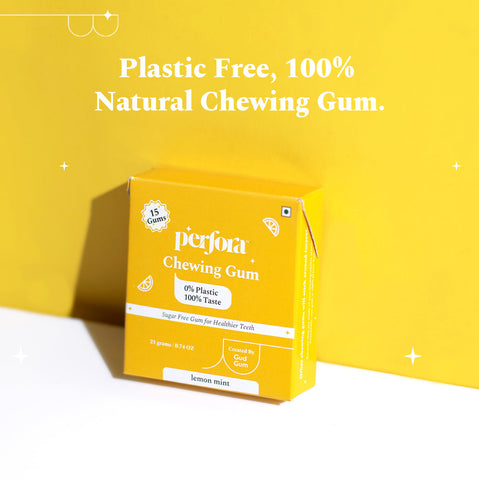Plaque is a sticky film of bacteria that forms on your teeth and gums. It can cause tooth decay, gum disease, and bad breath if left untreated. Fortunately, there are many natural ways to prevent and remove plaque from your teeth. In this article, we will share some of the best home remedies for plaque problems, as well as some tips on how to choose the right toothpaste and oral hygiene products.
Key Takeaways
- Plaque is a sticky substance that forms on teeth and gums due to the interaction between food and bacteria in the mouth. It can lead to tooth decay, gum disease, and bad breath.
- Daily habits like drinking plenty of water, chewing sugar-free gum, and eating crunchy fruits and vegetables can help prevent plaque formation.
- Dietary adjustments such as avoiding sugary and starchy foods, limiting acidic foods and drinks, and consuming calcium-rich foods can also help prevent plaque buildup.
- Effective brushing techniques, including using a soft-bristled toothbrush, brushing twice a day for at least two minutes, and using interdental cleaners like floss, are essential for combating plaque. Mouthwash can be used as an adjunct to brushing and flossing but should not replace them.
Understanding Plaque and Its Effects on Dental Health
Plaque is a result of the interaction between the food you eat and the bacteria in your mouth. When you eat sugary or starchy foods, the bacteria in your mouth break them down and produce acids that erode your tooth enamel. This creates a sticky substance called plaque that adheres to your teeth and gums. Plaque can also harden into tartar, which is a yellowish or brownish deposit that can only be removed by a dentist.
Plaque and tartar can cause various dental problems, such as:
- Tooth decay: Plaque and tartar can damage your tooth enamel and expose the inner layer of your tooth, called dentin. This can lead to cavities, which are holes in your teeth that can cause pain, sensitivity, and infection.
- Gum disease: Plaque and tartar can irritate your gums and cause inflammation, bleeding, and swelling. This is called gingivitis, which is the first stage of gum disease. If left untreated, gingivitis can progress to periodontitis, which is a serious condition that can damage the tissues and bones that support your teeth and lead to tooth loss.
- Bad breath: Plaque and tartar can also harbour bacteria that produce foul-smelling gases, which can cause bad breath or halitosis. Bad breath can affect your confidence and social life, as well as your overall health.

Daily Habits to Avoid Plaque on Teeth
The best way to prevent plaque and tartar from forming on your teeth is to practise good oral hygiene habits every day. Here are some of the daily habits that can help you avoid plaque on teeth:
- Drink plenty of water: Water can help you rinse away food particles and bacteria from your mouth, as well as keep your mouth moist and prevent dry mouth, which can increase plaque formation. Water can also neutralise the acids that plaque produces and protect your tooth enamel. Aim to drink at least eight glasses of water a day, and sip water after every meal or snack.
- Chew sugar-free gum: Chewing sugar-free gum can also help you clean your teeth and stimulate saliva production, which can wash away plaque and bacteria. Choose sugar-free gum that contains xylitol, which is a natural sweetener that can inhibit the growth of plaque-causing bacteria.
- Eat crunchy fruits and vegetables: Crunchy fruits and vegetables, such as apples, carrots, celery, and cucumbers, can act as natural toothbrushes and scrape off plaque and food debris from your teeth. They can also stimulate saliva production and provide vitamins and minerals that can strengthen your teeth and gums.

Dietary Adjustments to Prevent Plaque Formation
What you eat can also affect the amount of plaque that forms on your teeth. Some foods and drinks can promote plaque formation, while others can prevent it. Here are some of the dietary adjustments that can help you prevent plaque formation:
- Avoid sugary and starchy foods: Sugary and starchy foods, such as candies, cookies, cakes, bread, pasta, and chips, can feed the bacteria in your mouth and increase plaque production. They can also stick to your teeth and make it harder to remove plaque. Limit your intake of these foods and choose healthier alternatives, such as fruits, nuts, seeds, and cheese.
- Limit acidic foods and drinks: Acidic foods and drinks, such as citrus fruits, tomatoes, vinegar, coffee, tea, and soda, can erode your tooth enamel and make your teeth more vulnerable to plaque and decay. Rinse your mouth with water after consuming these foods and drinks and wait at least 30 minutes before brushing your teeth to avoid further damage.
- Eat more calcium-rich foods: Calcium-rich foods, such as milk, yogurt, cheese, and leafy greens, can help you strengthen your teeth and bones and protect them from plaque and decay. Calcium can also neutralise the acids that plaque produces and prevent enamel erosion. Aim to consume at least two servings of dairy products and one serving of leafy greens a day.
Effective Brushing Techniques to Combat Plaque
Brushing your teeth is one of the most important and effective ways to combat plaque and keep your teeth and gums healthy. However, brushing your teeth incorrectly or with the wrong tools can do more harm than good. Here are some of the effective brushing techniques to combat plaque:
- Choose a soft-bristled toothbrush: A soft-bristled toothbrush can gently remove plaque and food debris from your teeth and gums without damaging them. A hard-bristled toothbrush can scratch your enamel and irritate your gums and cause bleeding and inflammation. Replace your toothbrush every three to four months or when the bristles become frayed or worn out.
- Brush your teeth at least twice a day: Brushing your teeth at least twice a day, preferably in the morning and before bed, can help you prevent plaque buildup and maintain good oral hygiene. Brush your teeth for at least two minutes each time and cover all the surfaces of your teeth and gums. Do not brush your teeth too hard or too fast, as this can damage your teeth and gums and cause sensitivity and pain.
Choosing the Right Toothpaste to Prevent Plaque
When choosing the right toothpaste to prevent plaque, look out for ingredients like zinc citrate and tea tree oil. Zinc citrate is known for its ability to reduce plaque formation and enhance oral health by interfering with the calcification process in dental plaque. Tea tree oil, on the other hand, possesses natural antibacterial and anti-inflammatory properties, making it effective in fighting plaque-causing bacteria and promoting gum health. These ingredients, when included in toothpaste formulations, can offer a natural and effective way to combat plaque buildup.

Flossing and Other Interdental Cleaners: Your Best Defence Against Plaque
Flossing and other interdental cleaners, such as dental picks, brushes, and sticks, are your best defence against plaque, as they can help you clean the spaces between your teeth and under your gum line, where plaque and bacteria can accumulate and cause problems. Flossing and other interdental cleaners can also help you prevent cavities, gum disease, and bad breath. Here are some of the tips on how to use flossing and other interdental cleaners effectively:
- Floss at least once a day: Flossing at least once a day, preferably before bed, can help you remove plaque and food debris from between your teeth and under your gum line, where your toothbrush cannot reach. Flossing can also help you stimulate your gums and prevent inflammation and bleeding.
- Choose the right type of floss: There are different types of floss available, such as waxed, unwaxed, flavored, unflavored, thick, thin, etc. Choose the type of floss that suits your preference and needs. For example, if you have tight spaces between your teeth, you may want to use a thin or waxed floss that can glide easily. If you want more gum care based solutions try going for water dental flossers.
The Role of Mouthwash in Preventing Teeth Plaque
Mouthwash is another product that can help you prevent teeth plaque and improve your oral health. Mouthwash can help you rinse away plaque and bacteria from your mouth, as well as freshen your breath and prevent bad breath. However, mouthwash is not a substitute for brushing and flossing, and you should use it as an adjunct to your oral hygiene routine.
Using mouthwash after brushing and flossing can help you remove any remaining plaque and bacteria from your mouth and enhance the effects of brushing and flossing. Use about 20 ml of mouthwash and swish it around your mouth for about 30 seconds. Spit out the mouthwash and do not rinse your mouth with water or eat or drink anything for at least 30 minutes after using mouthwash. This will allow the mouthwash contents to stay on your teeth and protect them from plaque and decay.
Conclusion
Plaque is a common dental problem that can cause tooth decay, gum disease, and bad breath if not removed regularly. However, you can prevent and remove plaque from your teeth naturally by following some simple home remedies discussed above
By following these home remedies, you can solve your plaque problems naturally and keep your teeth and gums healthy and beautiful. However, these home remedies are not a substitute for professional dental care, and you should visit your dentist regularly for check-ups and cleanings. You should also consult your dentist before using any new products or treatments for your oral health.
We hope you enjoyed reading this blog article and learned something new. If you have any questions or comments, please feel free to leave them below. And if you are looking for the best toothpaste to prevent plaque, check out our website perforacare.com, where you can find a range of SLS-free products that are gentle and effective for your teeth and gums. Thank you for reading and have a great day! 😊
Frequently Asked Questions on Natural Dental Plaque Problems
1. How to avoid plaque on teeth?
Avoid plaque by brushing twice daily with an SLS-free toothpaste, flossing once a day, reducing sugary and starchy foods, and using an antibacterial mouthwash.
2. How to prevent plaque in teeth?
Prevent plaque by maintaining good oral hygiene, including regular brushing, flossing, and dental check-ups. Also, eat a balanced diet and avoid frequent snacking.
3. How do I stop plaque from forming on my teeth?
To stop plaque from forming on your teeth , use a soft-bristled toothbrush and dental floss regularly. Consider using dental products with plaque-fighting ingredients.
4. How to reduce plaque on teeth?
Reduce plaque on teeth by brushing thoroughly at least twice a day, flossing daily, using an antibacterial mouthwash, and scheduling regular dental cleanings.






